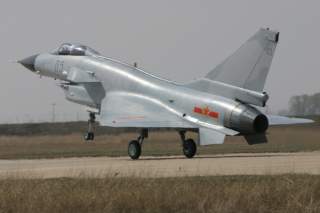China's Military Is NOT Going Rogue
There are a lot of things to worry about when it comes to geopolitics and national security. China's military going rogue is not one of them.
These are just three elements of the conventional deterrence that Beijing is using to shape the maritime security environment. They demonstrate both Chinese resolve and capability in ways that foreign countries can understand. Whatever difficulty the Chinese leadership has in coordinating and controlling actions by other elements of the government, Xi Jinping does have control over the PLA and, absent compelling logic to the contrary, the military is not just another Chinese maritime actor able to exploit bureaucratic protocols and vague authorities.
Control over the PLA and the ability to signal domestically when Chinese leaders think the military may no longer be able to prevent shots being fired give Beijing a powerful pair of tools to shape the security environment along the country’s maritime periphery. The Chinese central authorities do not need to be able to direct and coordinate strategy so long as Beijing can use deterrence to buy time to rein in actors whose pursuit of parochial interests that reinforce Chinese maritime claims threatens the peace.
China’s leadership has engaged previously in this kind of posturing with domestic unrest, demanding local governments address or suppress unrest while Beijing reserved the right to intervene to answer demonstrators’ demands. This approach, what Brookings scholar Cheng Li called “think national, blame local,” allows Beijing to avoid blame and to be the sole source of succor when the time comes to resolve the situation. The Wukan uprising of late 2011 illustrated this dynamic as the villagers expelled a local cadre but held signs seeking Beijing’s assistance while facing down riot police. As local governments, companies, and other sub-national actors create problems, the Chinese leadership and central ministries become the ostensibly responsible and moderate players in maritime issues.
Can this creation of plausible deniability of the leadership’s responsibility be called a strategy or simply deft management of an otherwise unworkable balancing act? Regardless of the answer, the PLA forms a critical component of China’s approach to maritime security and there is little reason to see the military as an uncontrollable or unpredictable actor. Instead, Chinese deterrence and its ability to generate circumspection in foreign capitals probably allow Beijing the luxury of not expending a great deal of effort to understand what provincial governments, fishing boats, and companies are doing on a day-to-day basis.
Peter Mattis is a Fellow with The Jamestown Foundation and a visiting scholar at National Cheng-chi University’s Institute of International Relations in Taipei.
Image: Wikimedia Commons/mxiong/CC by 2.0

